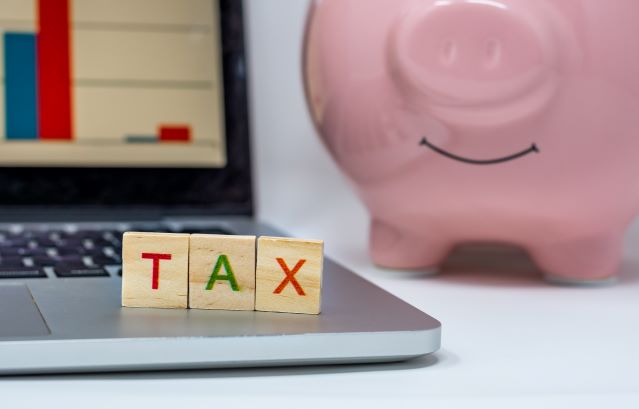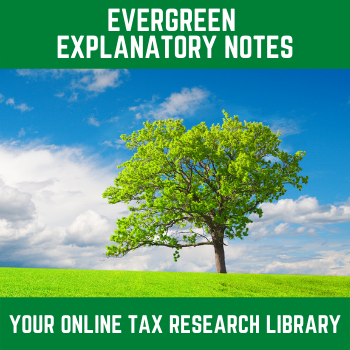Tax Exempt: Inflation Supports Cause Confusion

Walter Harder and Evelyn Jacks
Is it reportable or not? Many taxpayers are confused about the various government support programs they have been entitled to in 2022 and 2023. As a general rule, if a support payment is taxable, there will be a T4A or T4E showing the amount to be reported as income. But if any of the amounts itemized below - inflation support measures – were received, they won’t be reportable.
TAX-EXEMPT INFLATION SUPPORTS – FEDERAL
Canada Dental Benefit. Starting in December 2022, under a plan that will cost $5.3 billion over five years, families with kids under 12 will qualify for an up-front tax-free payment for dental work depending on their income level.
The first claim period starts October 1, 2022, and the last day to apply is Friday, June 30, 2023 (11:59 pm ET). There are two ways to apply: through CRA’s My Account or by phone.
Taxpayers must be prepared to justify amounts spent with receipts and provide the following:
- Each eligible child's dental care provider's name, address, and telephone number
- Date or expected date of the child's dental appointment
- Your employer's name, address, and telephone number (if applicable)
- Your spouse or common-law partner's employer's name, address, and telephone number (if applicable)
Eligibility criteria are as follows:
- The family has no private health care plan
- There are out-of-pocket dental costs backed up by receipts
- Qualifying amounts paid are retroactive to October 1, 2022
- Family income must be under $90,000, and a 2021 tax return must have been filed.
- Amounts payable are:
- Family net income under $70,000 = $650
- Family net income between $70,000 and $79,999 = $390
- Family net income between $80,000 and $90,000 = $260
The Canada Dental Benefit will not affect other income-tested programs such as the Canada Workers Benefit, Canada Child Benefit or Good s and Services Tax Credit.
s and Services Tax Credit.
The Doubling of the GST/HST Tax Credit. Canadians who filed a 2021 tax return and were eligible for the GST/HST Tax Credit received a one-time payment late in the year. The amount received was the amount normally received in 6 months (2 quarterly payments). The maximum eligible amounts for the 2022-2023 benefit year are:
- $467 for singles without children; the extra payment would be $233.50.
- $612 for married or common-law partners; or single parents; the extra payment would be $306.
- $161 for each child under the age of 19; the extra payment would be $80.50.
Housing Assistance for Low-Income Renters. A one-time tax-free payment under the Canada Housing Benefit, introduced in the April 2022 budget, provided $500 to families whose net income was under $35,000 and singles with net income under $20,000. To apply, it was necessary to attest to the renter’s age, income, residency, landlord’s contact information and address of the rental property. In addition:
- Renters must have paid at least 30% of adjusted net income on shelter costs
- Rental payments must have been for their own primary residence in Canada
This top-up payment will not affect other government programming based on net income, such as The Canada Workers Benefit, Canada Child Benefit, Goods and Services Tax Credit, Guaranteed Income Supplement, something you’ll need to know when filing this year’s return.
Climate Action Incentive (CAI). For 2022 and subsequent years, the Climate Action Incentive is paid quarterly rather than as part of the tax refund. To receive each payment, the taxpayer must meet the eligibility requirements on the first day of the month to which the payment applies:
- Be at least 19 years of age, married or living common law, or the parent of a child.
- Live in an eligible province (AB, SK, MB, ON, NS, PE, NL)
If a qualified dependant becomes age 19 during the year, their CAI will no longer be included in the CAI for their parent but will be paid separately to them, so long as they have filed a tax return for the previous year. For these reasons, a tax return should always be filed for an 18-year old.
If the taxpayer has a balance due with CRA at the time of the scheduled payment, the payment will first be applied to reduce the balance due, and payment will only be made for any amount that exceeds the balance due. Taxpayers who change provinces during the year should inform CRA immediately so that their eligibility can be determined for the next CAI payment.
TAX-EXEMPT INFLATION SUPPORTS – PROVINCIAL
In 2022 provincial governments provided cash payments to help cope with inflation.
March 2022:
- Quebec announced it would issue $500 to every adult earning $100,000 or less.
- Nova Scotia announced it would provide one-time $150 payments to those receiving assistance payments.
- British Columbia announced it would issue auto insurance rebates of $110. The process took several months, with the last cheques mailed out in early August.
Summer 2022:
- In June, New Brunswick issued an “emergency fuel and food benefit” of $225 to individuals and $450 to households receiving assistance payments.
- Prince Edward Island issued a one-time enhanced sales tax payment in July to low-income households.
- In August, Saskatchewan announced that, in the fall, it would send $500 cheques to residents aged 18 and over.
Fall 2022:
- In the fall, Newfoundland and Labrador issued a one-time payment to families earning below $150,000 to supplement the cost of furnace oil.
- In late September, Manitoba issued cheques to families with children and income below $175,000. Amounts will be $250 for the first child and $200 for each additional child. Seniors with a net income below $40,000 will receive $300 each.
First Quarter 2023
- Alberta announced in January that it would be making tax-fee payments to several groups including families with children, seniors and the disabled.
- British Columbia announced the BC Affordability Credit to be paid to singles with net income below $79,376 and families with net income below $128,001 to be paid with the BC Climate Action Tax Credit.
- Manitoba announced the Carbon Tax Relief Fund which will pay residents $225 for singles and $375 for couples where family net income is below $175,000.
- Prince Edward Island issued a one-time enhanced sales tax payment in January to households with income below $145,000.
Bottom Line: Always file a tax return – not just to get back your tax refund, and your refundable tax credits, but also to qualify for new and emerging inflation supports.
Additional Educational Resources: No time to wait on the phone for answers to your tax questions? Get off the phone and get fast answers - plus stay up to date with ongoing tax change, tax forms, tax guides and tax theory in real time: Evergreen Explanatory Notes. An incredible resource that will become your go-to reference for answers to your personal and corporate tax questions and the GST/HST. Included are quick links to the relevant government publications: the Income Tax Act, CRA forms, publications, Folios and more… everything you need to make informed decisions about audit-proofing and tax audit responses.
©Knowledge Bureau, Inc. All rights Reserved